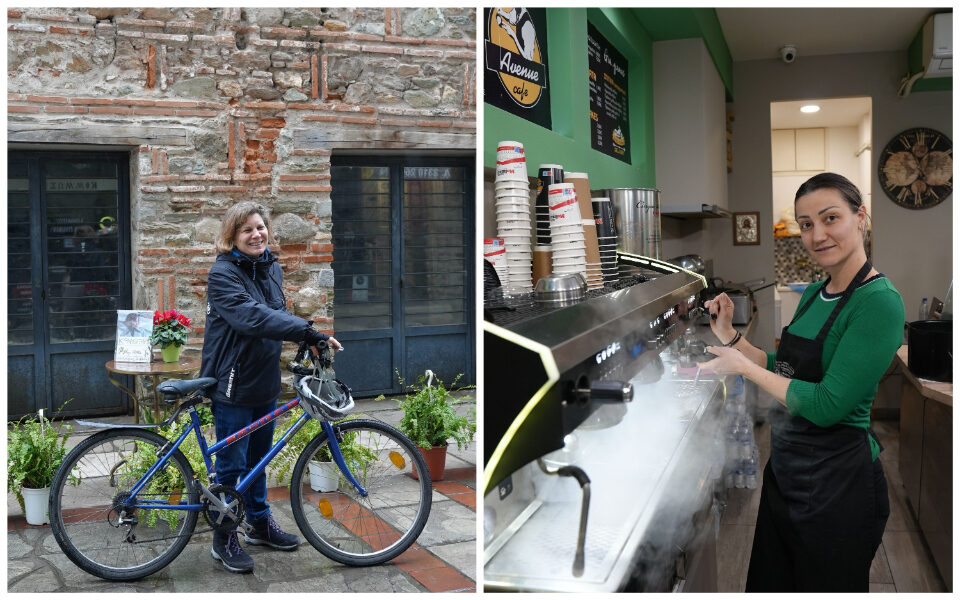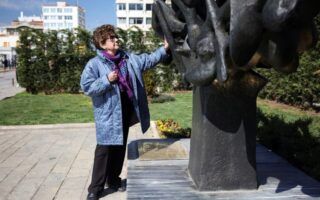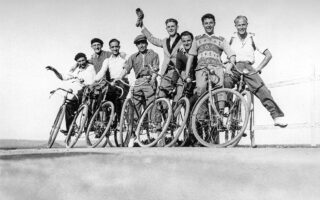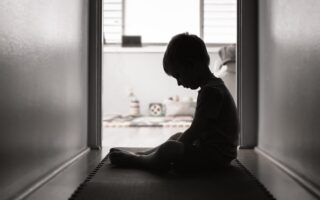‘Why are you so hell-bent on becoming Greek?’
The bureaucratic hurdles facing two women, one Turkish and one Albanian, who dream of getting citizenship

Lale Alatli fell in love with Greece through rebetiko music. She listened to it with her Greek fellow students while they were studying in Italy. She copied CDs and tapes and by studying the lyrics she started to learn Greek. But in Turkey, where she comes from, she could not find anything Greek at that time. “It was like there was an invisible wall between the two countries,” she recalls. In 1999 she returned to Istanbul with two self-learning books (from Italian to Greek) which she read every day for hours.
Her parents, though open-minded, were concerned. “What are you going to do with Greek, my girl?” they would ask her. But she had visited Thessaloniki, in northern Greece, for a holiday and already felt a strong familiarity with the place. “At first I was attracted by the language, its musicality. But I also liked the nature, the sea – there’s no place like Halkidiki – and basically the people. They had the good elements of the Turks, the warmth, but they were more civilized. I felt more like myself here,” she tells Kathimerini.
In 2010 she moved to Thessaloniki. She continued to do translations that were sent to her from Turkey, but she had timidly started offering private lessons to students. Initially she had only two students, one in the town of Kozani and one in Ptolemaida. Gas cost her more than what she made, but she had to start somewhere. When the Turkish TV dramas started being broadcast in Greece, she was suddenly in high demand. Today she mainly does translations (from both Greek and Turkish) and writes poetry (also in both languages).
Dora Hisko, on the other hand, learned to love Greece over time. She came from Albania in 2001, aged 18, to spend a summer with her brother who lived here, while their parents visited her sister in Germany. Unlike her brothers, she had not lived through the difficult years after the death of authoritarian Albanian leader Enver Hoxha. She intended to return to Tirana to study. But she fell in love with her now-husband – also from Albania – and they decided to live in Athens. Like Lale, she started learning Greek from songs, “especially the sad ones of [popular laiko singer Yannis] Ploutarchos” and from television. She would note down words and look them up in a dictionary. When they decided to start a family, she started intensive Greek lessons. She wanted to be able to help her children when they went to school. At the same time, she worked hard, first as a saleswoman in a bakery, then as a waitress. In recent years she has chosen to work fewer hours so she could be at home more, near her daughter. “Teresa is today 14 years old, an excellent student. She has been a flag bearer in the parade three times,” she proudly tells Kathimerini, referring to the tradition of selecting the top student in each class to carry the Greek flag in parades held on the country’s two national holidays.
Those two women, Lale from Turkey and Dora from Albania, one living in Thessaloniki and one in Athens, would have likely never crossed paths. For the last few months, however, they have been in constant communication. What has united them is their desire to become Greek citizens, and in particular the obstacles placed in their way by the Greek state.
They both submitted their papers for citizenship in 2017. The main reason was that they felt that this is now their home, their country. “I feel like I belong here. Especially since I come from a country that can cancel my passport at any moment, I don’t want to live with the anxiety of what might happen if something goes wrong between Greece and Turkey,” explains Lale. Dora wanted Greek citizenship because many times she felt she was treated differently when she showed her Albanian passport. The same is happening to her daughter, who was born here.
Both women had provided all the necessary supporting documents. They met all the conditions. They knew, of course, that the process would take some years. When Lale asked the authorities when she could expect a response, she was told that there was a volunteer committee that met twice a year and that at the time (in 2017) they were still looking at applications from 2010. Along the way, the system changed and required that candidates also pass exams. Lale, who in the meantime had received a degree from a Greek university, was able to opt out. “That’s quite fortunate because I was concerned about the questions. I may know everything about rebetiko or poetry, but I don’t know about [famous actress Aliki] Vougiouklaki’s roles or what day we bake fanouropita [a traditional lenten cake],” she says, laughing. Dora, who had to take the exam, would come home from work and, after taking care of her daughter and the house, would sit and read. She passed the exam with 98%. But in the end even that wasn’t enough. In March 2022, they both learned that they had been rejected.
When Dora found out, she was shocked. She took all the supporting documentation and went to the ministry by herself, asking for an explanation. She had not hired a lawyer because she thought she had everything she needed and already the cost of the fees for the application (750 euros) had strained her financially. To her persistent questions, the answer of an employee left her speechless: “And why are you so hell-bent on becoming Greek?”
Lale, having worked as a translator for the Hellenic League for Human Rights, had access to the NGO’s lawyers, who explained to her what had happened. In 2020, the leadership of the Interior Ministry tried to introduce “economic inclusion” criteria into the citizenship law. The specific provisions were rejected in Parliament, withdrawn, but reintroduced a year later as a ministerial decision.
The new circular asked candidates to prove that for five years prior to filing the application, they had an annual income of 6,500 euros or more. In theory, Lale wouldn’t have a problem with this restriction. She had sold her apartment in Turkey and transferred 300,000 euros to a Greek bank account. With this money she lived a comfortable life, she had even started building her own house in the district of Epanomi. The circular, however, also imposed another limitation: The income had to come exclusively from business activity, and exclusively in Greece.
When Lale first came to Greece, she ran a Turkish company. In 2016 she closed it and opened a Greek company, so she could not show the required income for all five years. “I felt great disappointment. It was as if someone was trying from the beginning to put obstacles in my becoming Greek and had finally succeeded. I felt like a foreigner. I thought about leaving, but where could I go? This is my home,” she says. She appealed the decision, but her appeal was rejected within six days. The more lawyers studied her case, the more they insisted that she should take legal action. They explained to her that it is illegal and unconstitutional for this circular to apply retroactively. She started thinking about her options, but she didn’t know if she could handle the procedure psychologically – until one day she met Dora on Facebook.
The two women shared their stories, first through texts and then over the phone. They had both been rejected for the same reason, but Dora was not discussing taking legal action. Even when Lale’s lawyers offered to take her case pro bono. “I make 450 [euros] a month. I cannot afford to set aside 50 euros a month for a year to cover the costs of a trial,” she explained to Lale.
At the beginning of March, Lale appeared before Thessaloniki’s Administrative Court of Appeal to present her case against the rejection of her application. There were dozens of organizations she was a member of or had supported for years who expressed their support: From animal charities, hospitals and orphanages she visited with her dog, to environmental groups with which she cleaned the city and the beaches, and from PEN International to her neighbors in her apartment building, all had sent letters of support. “They say you usually hear good things about someone after they die. I was lucky enough to hear them while still alive,” she says, laughing. “I was also fortunate to be financially comfortable and to be able to do all these activities that showed my inclusion in the country. If I lived paycheck to paycheck I couldn’t afford to do any of this, certainly not the cost of a trial. So I feel like I am fighting this fight for all those who were unfairly rejected. As Dora told me, if I win, it will be like we all win.”
The court’s decision will be issued in a few months. Lale continues her life in Greece and recently moved into the new house she built and is trying to figure out what Greece is for her. “I want to forget the rejection and the feeling it caused me and focus on the support I had,” she concludes.





